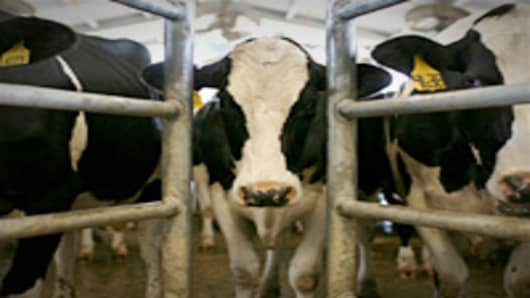The funny, far-reaching business of regulatory reform.
"I don't think anybody has read it," says cowboy Brett Crosby of the 2,300-page FinReg bill. "War and peace is only 1,400 pages, for crying out loud, and people don't even read that." ?
Crosby is very concerned that somewhere in the just-signed monumental piece of legislation are rules that will hurt his ability to manage risk at his Wyoming cattle ranch. This self-described "MBA Cowboy" has been using futures contracts for years to provide a hedge against the often volatile price of cattle. Crosby prefers feeder cattle futures, as they most closely match his business.



